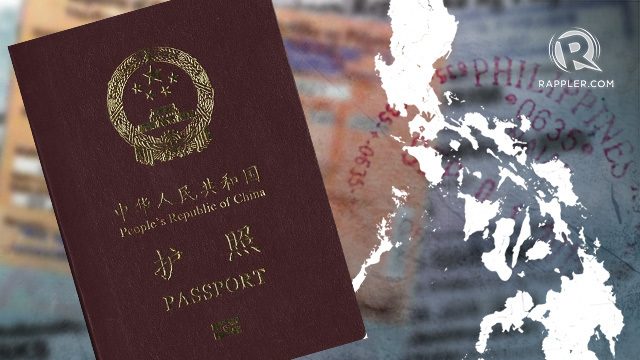SUMMARY
This is AI generated summarization, which may have errors. For context, always refer to the full article.

MANILA, Philippines – The Philippines will not be scrapping visas-upon-arrival (VUA) for Chinese tourists. Rather, the government will be limiting the VUAs’ validity to only 30 days without provision for extension, the Department of Justice (DOJ) said on Sunday, January 12.
“(The) amendment would not allow for any extension (for the) visa upon arrival. (It will have a) maximum of 30 days,” said Justice Undersecretary Markk Perete.
It’s also a single entry type of visa, according to Perete, so the effectivity lapses when the tourists exit the Philippines even if their stay is less than 30 days.
“(They must show a) roundtrip ticket. If they’re coming in as tourists, they must have booked accommodations for every stop in their itinerary. The tour operator must be, of course, accredited, and the tour operator must provide all the details where they will be staying, [or show] proof of accommodations,” Perete said.
When the DOJ under former Secretary Vitaliano Aguirre granted VUA to Chinese tourists, athletes, investors, and businessmen, their visas were effective for 3 months, but extendible to another 3 months, bringing their maximum stay to 6 months.
The amendment also prohibits conversion of visas.
“You cannot convert the visa into a work visa, for example, or into a resident’s visa,” said Perete.
Perete, the undersecretary for immigration, said that the DOJ aims to publish the amendment next week, which will be effective 15 days after publication.
Not scrapping
The original recommendation by Foreign Secretary Teodoro Locsin Jr was to scrap the VUA altogether.
It was taken into consideration when the DOJ and the Bureau of Immigration (BI) announced in August 2019 that they were reviewing the policy, in light of concerns from other agencies on the influx of illegal Chinese workers in the Philippines.
Perete has not yet responded to the question whether scrapping the VUA is off the table.
“We just put in more restrictions specifically because of the complaints that many are using that facility to obtain employment in the Philippines,” said Perete, acknowledging the problems brought about by POGOs or Philippine Offshore Gaming Operators, who are mostly Chinese. (READ: How China’s online gambling addiction is reshaping Manila)
“Part of it [is] the POGO. Some have used that facility to obtain employment later on, whether it’s POGO or any other kind of employment,” said Perete. – Rappler.com
Add a comment
How does this make you feel?
There are no comments yet. Add your comment to start the conversation.